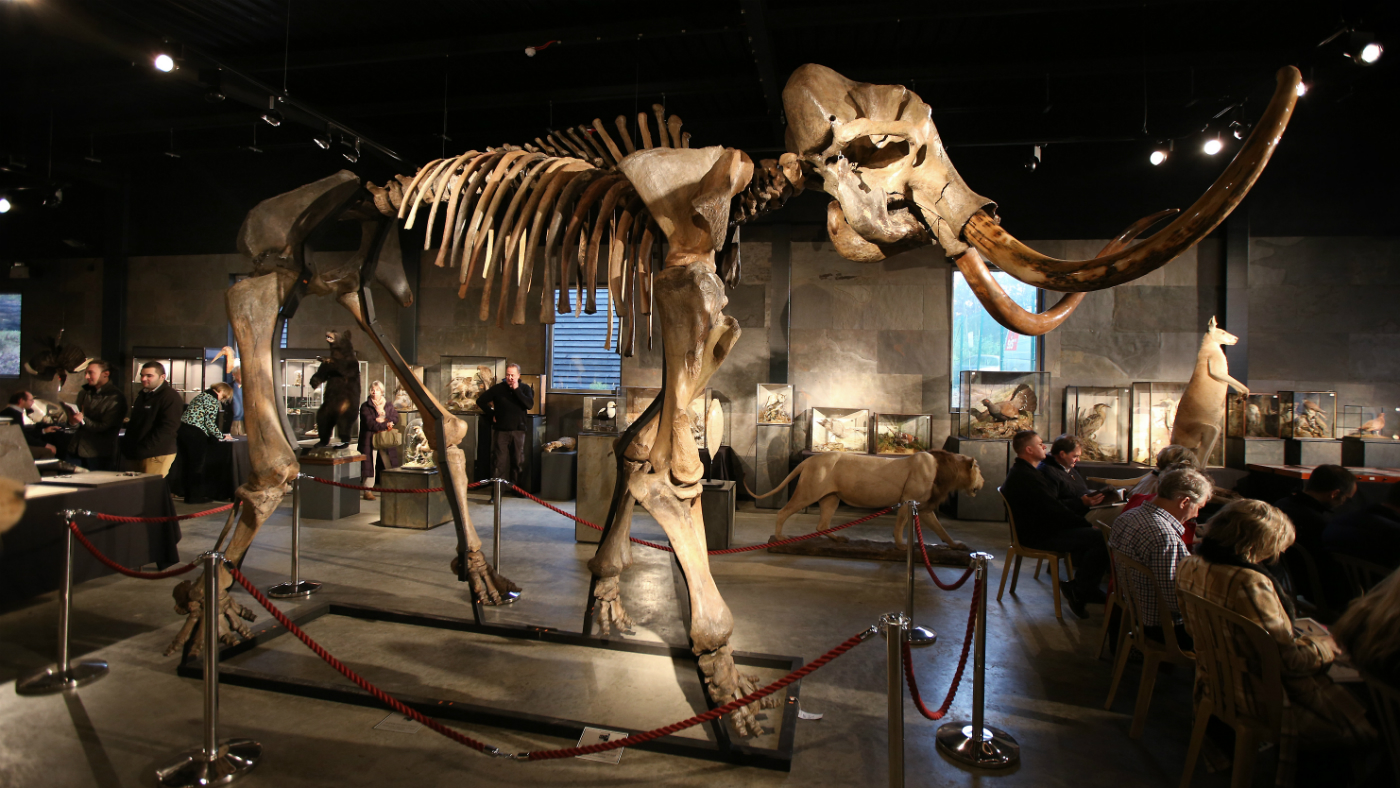Can the woolly mammoth be brought back from extinction?
DNA from Stone Age mammal could be used to create hybrid embryo 'within two years', say Harvard scientists

A free daily email with the biggest news stories of the day – and the best features from TheWeek.com
You are now subscribed
Your newsletter sign-up was successful
Scientists say they will be able to grow a woolly mammoth embryo within two years, using DNA extracted from 42,000-year-old remains found frozen in Arctic permafrost.
While the quality of the DNA has deteriorated over the years, US scientists from Harvard University are confident they can combine key mammoth genes with DNA from an Asian elephant, its closest modern day counterpart.
Using cutting-edge technology, they will insert key traits from the historic animal, such as giant tusks and a shaggy coat, into an elephant embryo.
The Week
Escape your echo chamber. Get the facts behind the news, plus analysis from multiple perspectives.

Sign up for The Week's Free Newsletters
From our morning news briefing to a weekly Good News Newsletter, get the best of The Week delivered directly to your inbox.
From our morning news briefing to a weekly Good News Newsletter, get the best of The Week delivered directly to your inbox.
The resulting hybrid will then be grown in an artificial womb.
Professor George Church, leading the Harvard Woolly Mammoth Revival team, said: "We're working on ways to evaluate the impact of all these edits and basically trying to establish embryogenesis in the lab."
The team hope the experiment will ultimately create a living creature which is "like an elephant with a number of mammoth traits", Sky News reports.
Church said: "We're not there yet, but it could happen in a couple of years."
A free daily email with the biggest news stories of the day – and the best features from TheWeek.com
Mammoths roamed Eurasia and northern America, then mostly a cold, grassy steppe, for centuries – evidence shows they co-existed with early humans, who used them for food and to make bone tools and jewellery.
However, the end of the last ice age, around 11,700 years ago, wrought destructive changes to their habitat and within a few thousand years, the mainland population was extinct, although an isolated mammoth colony on Wrangel Island, in the Arctic Sea, is thought to have died out as recently as 4,000 years ago.
If the Harvard project is successful, says The Independent, it "could give rise to the rebirth of a range of creatures that have died out".
-
 What to know before filing your own taxes for the first time
What to know before filing your own taxes for the first timethe explainer Tackle this financial milestone with confidence
-
 The biggest box office flops of the 21st century
The biggest box office flops of the 21st centuryin depth Unnecessary remakes and turgid, expensive CGI-fests highlight this list of these most notorious box-office losers
-
 The 10 most infamous abductions in modern history
The 10 most infamous abductions in modern historyin depth The taking of Savannah Guthrie’s mother, Nancy, is the latest in a long string of high-profile kidnappings
-
 Home Office worker accused of spiking mistress’s drink with abortion drug
Home Office worker accused of spiking mistress’s drink with abortion drugSpeed Read Darren Burke had failed to convince his girlfriend to terminate pregnancy
-
 In hock to Moscow: exploring Germany’s woeful energy policy
In hock to Moscow: exploring Germany’s woeful energy policySpeed Read Don’t expect Berlin to wean itself off Russian gas any time soon
-
 Were Covid restrictions dropped too soon?
Were Covid restrictions dropped too soon?Speed Read ‘Living with Covid’ is already proving problematic – just look at the travel chaos this week
-
 Inclusive Britain: a new strategy for tackling racism in the UK
Inclusive Britain: a new strategy for tackling racism in the UKSpeed Read Government has revealed action plan setting out 74 steps that ministers will take
-
 Sandy Hook families vs. Remington: a small victory over the gunmakers
Sandy Hook families vs. Remington: a small victory over the gunmakersSpeed Read Last week the families settled a lawsuit for $73m against the manufacturer
-
 Farmers vs. walkers: the battle over ‘Britain’s green and pleasant land’
Farmers vs. walkers: the battle over ‘Britain’s green and pleasant land’Speed Read Updated Countryside Code tells farmers: ‘be nice, say hello, share the space’
-
 Motherhood: why are we putting it off?
Motherhood: why are we putting it off?Speed Read Stats show around 50% of women in England and Wales now don’t have children by 30
-
 Anti-Semitism in America: a case of double standards?
Anti-Semitism in America: a case of double standards?Speed Read Officials were strikingly reluctant to link Texas synagogue attack to anti-Semitism